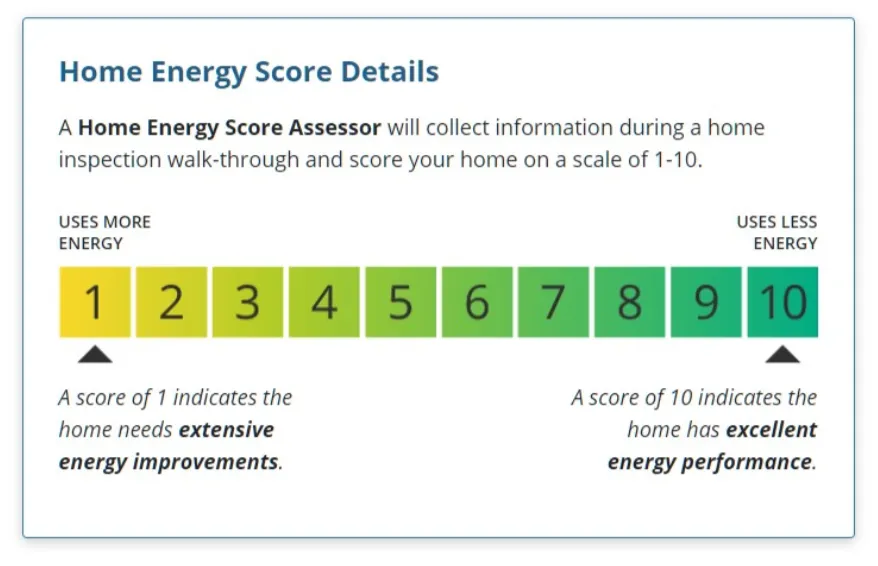THERE IS A BETTER WAY
Our qualified and trained Home Energy Advisors are here to consult with you on the right approach for your home.
Advisors offer free, unbiased advice that will walk you through any rebates, tax saving, and see if your home is a candidate for solar (not every home is)
and help you find a cost-saving solutions.

Energy Savings
Our Home Energy Advisors will personally assist you, at no cost, with your energy-efficient project goals.
They’ll point you in the right direction for projects, upgrades and rebates.
Home Energy Assessment vs Home Energy Audit
A home energy assessment, also known as a home energy audit, can help you understand the whole picture of your home's energy use, comfort, and safety.
An assessment can help you determine how much energy your home uses, where your home is inefficient, and which problem areas and fixes you should prioritize to save energy and improve the comfort of your home.
A home energy assessment should be your first step before making energy-saving home improvements, as well as before adding a renewable energy system to your home.

Step 1
Review your utility usage

Step 2
Home Energy Score

Step 3
Make recommendations
What does the process look like?
Professional energy assessments generally go into great detail to assess your home's energy use. Our energy assessor will do a room-by-room examination of the residence, as well as a thorough examination of past utility bills. Walk through your home with the assessor and ask questions.
Depending on the situation our assessments might include a blower door test and a thermographic scan. Assessors may use equipment to detect sources of energy loss, furnace efficiency meters, and surface thermometers. Using our 21-Point Energy Saver 101 home energy audit.
Through the process, the home assessor will gather information and produce a report including characterizations of your home and action you can take to reduce your home's energy use while increasing comfort of the living space.

We focus on high energy usage appliances. Such at A/C, water heaters, pool pumps, etc
Improve the efficiency of heating, cooling and hot water equipment.Install home ventilation, smart thermostats, LEDs, smart power strips, ENERGY STAR appliances, solar PV, an electric vehicle charger, and other efficient technologies that improve home performance.
Then we will make recommendations for solar panels, and other energy saving devices.
Why Choose Us?

Reason #1
In-depth home assessments by certified auditors

Reason #2
Customized recommendations tailored to your home

Reason #3
Ongoing support from our advisors through the whole process
Before you Go Solar
Download & Review this FREE Guide

Do you know what your HES is?

What is a (HES) Home Energy Score: A Game Changer for Full Disclosure:
Across the country, state and local governments are turning to the U.S. Department of Energy’s (DOE’s) Home Energy Score as a low-cost way to improve consumer awareness of and spur investment in energy efficiency.
Home Energy Score is a natural fit to simplify data collection and provide reliable information comparing energy efficiency across homes.
What is the Home Energy Score?
Like a miles-per-gallon rating for homes, the Home Energy Score is an easy-to-understand rating designed to give homeowners, homebuyers, and renters insights about a home's energy performance.
Using a simple 1-to-10 scale, the Score was designed to be easy to understand and tap into people’s desire to improve their score and outperform their peers.
Based on a standard, in-home assessment of a home’s energy-related assets, the Home Energy Score Report provides various pieces of information that can be included in home listings and used with home financing products.
The Report also includes energy efficiency recommendations that would improve the Score through cost-effective investments.
Why Use the Home Energy Score?
It is consistent across markets. DOE provides free, online training and testing for building professionals to become Home Energy Score Certified Assessors.
By normalizing across climates and using standard HOME ENERGY SCORE assumptions, any home in the U.S. can be scored and compared in terms of energy performance.
It balances national reliability with local flexibility. The Home Energy Score applies a standard, transparent methodology to assessing energy use, allowing homes to be compared fairly. Partners also have flexibility to customize recommendations and label information to local market conditions.
What client say about us...

Working with Synergy to upgrade my home with solar pencil was a great decision. The was knowledgeable, friendly, and the improvements have made a noticeable difference.
- Michael Chen

Synergy’s energy efficient solutions helped us reduce our annual operating costs by 15% and improve our sustainability. Their team is knowledgeable, reliable, and committed to providing exceptional service.
-Mamma Mia’s Trattoria - Joey Logrosso CEO

Synergy’s educational approach & on going solar was very refreshing to me. Their energy advisor wasn’t pushy, came to my home twice and throughly explained the advantages of transitioning to a renewable energy system rather than staying locked in with my utility company. I will continue to recommend them to my friends, family and Co-Workers.
- Katie Collins - homeowner
Frequently Asked Questions
What is Net Metering?
Net metering is a billing mechanism that credits solar energy system owners for the electricity they add to the grid. For example, if a residential customer has a PV system on their roof, it may generate more electricity than the home uses during daylight hours.
How many panels will my home need?
On average, a household requires about 17 to 21 solar panels to provide enough solar energy to power a home. Several important factors, such as your geographical location, the size of your home and the specifications of the solar panels, can determine the exact number of solar panels necessary for your home.
Do I need a battery backup for my home?
Battery backups are not necessary but might be better for your wallet. For example, if you have a time-of-use utility plan, you can use a battery backup system to save money on your electricity bill. Instead of paying high electricity rates during peak usage hours, you can use energy from your battery backup to power your home.
How do I qualify for the 30% Federal Tax Credit?
Federal Solar Tax Credit Eligibility - You can qualify for the ITC as long as your solar system is new or being used for the first time between January 1, 2006 and December 31, 2023. Unless Congress renews the ITC, it expires in 2024. Other requirements include: You must own the system outright (not lease it)
If my roof is old & needs to be replaced, can you help me with that?
If your roof needs to be replaced, we work with licensed roofing contractors around the country that work efficiently to get your roof replaced.
What type of roofs can you install solar on?
Our rooftop solar systems can be installed on Flat, tile, shingle & standing seam metal roofs.

Amet minim mollit non deserunt
ullamco est sit aliqua dolor do amet
sint. consequat duis enim velit mollit.
Social Media Links
Contact Us
(xxx) xxx-xxxx
info@yourcompany.com
Lorem ipsum, XYZ 12345